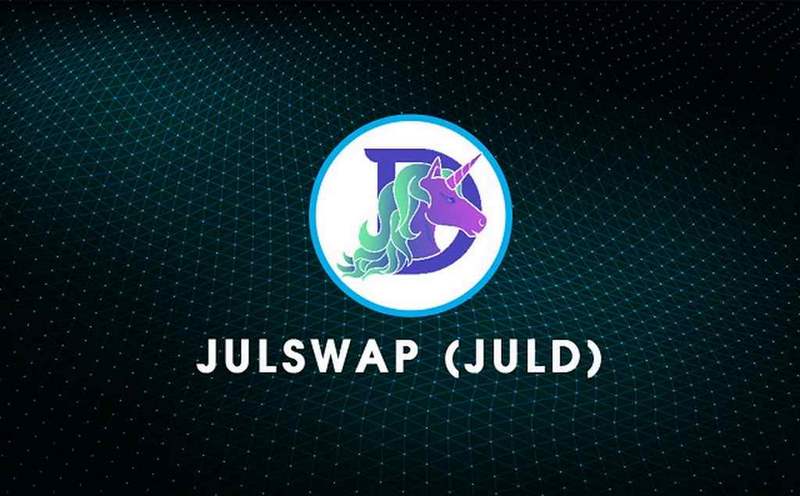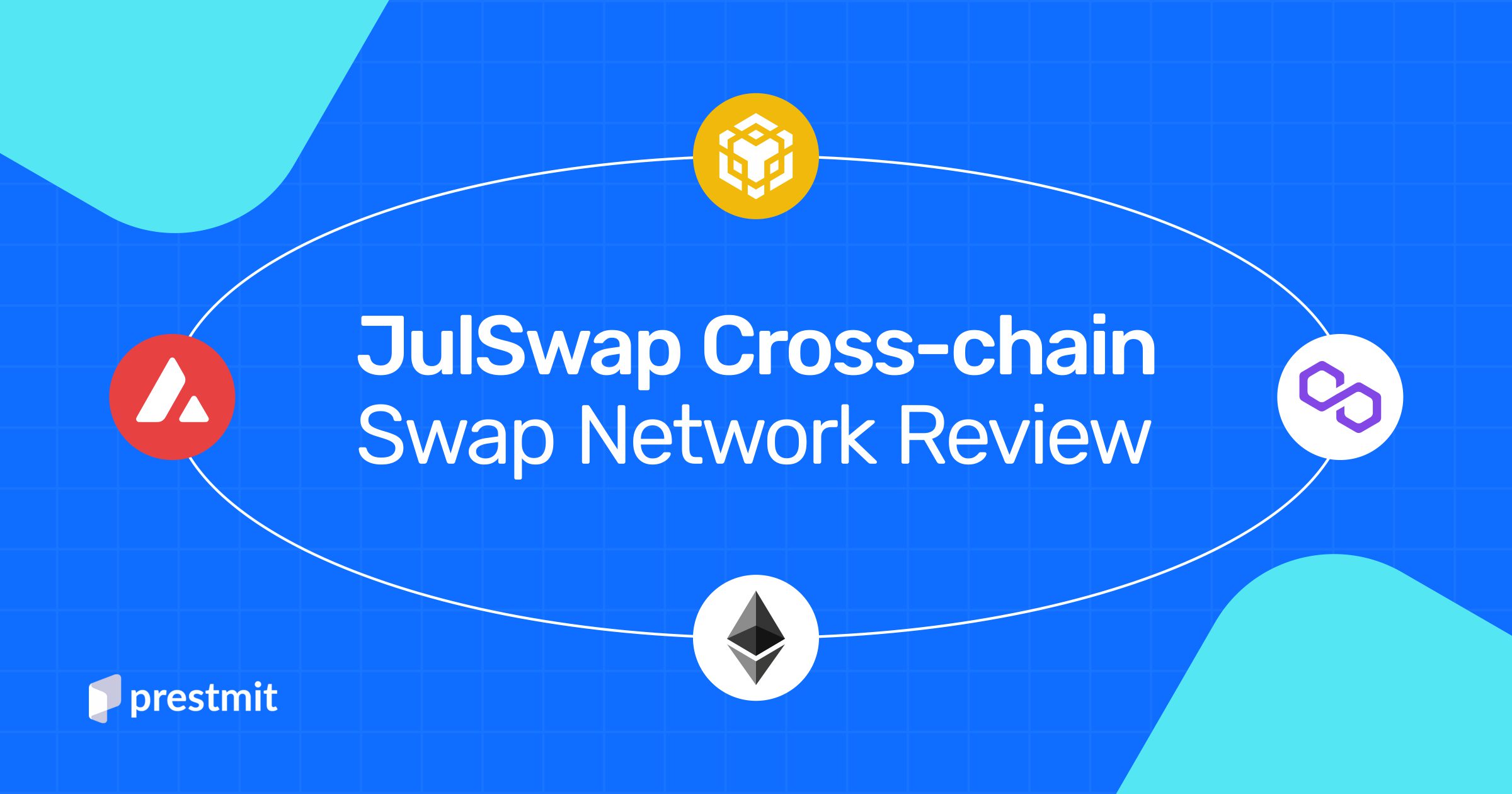Are you planning a small or crypto-based project and the high Ethereum Gas fee is affecting the growth of your business? You may need to know about JulSwap cross-chain network as an alternative to help you move your business to the Binance Smart Chain at zero within a few days.
JulSwap is a cross-chain swap network that allows for the automated and decentralised exchange of BCS-20 tokens. Its main goal is to reduce the challenge of entry into the financial market by creating easy access to the decentralised finance (DeFi) movement.
JulSwap enables one-click, multi-chain swap by using cross-chain messages and assembling various multi-chain liquidity sources from top decentralised exchanges and bridges.
Also, JulSwap is a cross-chain platform that enables the connection of centralised applications (apps) with several blockchains. For instance, users can easily convert a token on a chain into another token on the other chain with a single transaction. This is to show that JulSwap supports other dApps, thereby, enabling developers to access the cross-chain liquidity protocol to build NFT marketplaces, cross-chain DeFi, IDO launchpad platforms, and whatnot.

JulSwap is primarily built with a unique smart multi-chain mechanism and supports a wide range of decentralised exchanges, tokens, blockchains, and bridges, making it a toast to users and developers.
This platform enables individuals or businesses to create their liquidity pools, hence making JulSwap a popular component of the Binance Smart Chain ecosystem. JulSwap can be described as the equivalent of Uniswap on the Binance Smart Chain. This is because the cross-chain platform offers similar Trading Engines and analytics just as we have in Uniswap and other features as they are available on Sushiswap.
Key Features Of JulSwap
There are some distinguishing features that JulSwap different from the likes of Uniswap and Sushiswap. So let’s take a look into these features.
1. Liquidity Pools And Automated Market Makers (AMM)
A liquidity pool is the total funds locked in a smart contract. Liquidity pools are used to facilitate decentralized trading and funding. As such, JulSwap users can add an equal value of two tokens in a pool to create a market. These users would earn trading fees from the trades that take place in their pool, which serve as an exchange for the users’ funds. But this is proportionate to the users’ share of the total liquidity.
Moreover, the AMM feature on JulSwap eliminates the influence of the counterparty. Instead, users are trading against the liquidity in the liquid pool. This means that a buyer may buy from the pool at any time without the availability of the seller then.
2. Yield Farming And Staking Opportunities On JulSwap
JulSwap staking provides you with the preferred option to stake your crypto tokens into JulSwap’s Staking Contracts to earn rewards for the crypto token deposited upon the availability of rewards for the JulSwap community. In most cases, the project token team are saddled with the responsibility of making reward deposition of every staking pool into the staking smart contract pool.
However, there is no timeline for the distribution of the deposited rewards.
For instance, while the JULb and JFT staking pools have rewards distributed every 7 days, the SLP Token Staking Contracts their rewards every 90 days.
3. User-Friendly Interface And Intuitive User Experience
There is a good level of ease in using the JulSwap. It has a user-friendly interface that makes navigation simple for both beginner and advanced users. As such, using the platform does not require a guide because its features are not too complex to understand.
Security Measures Implemented On JulSwap
There is a class array of security features put in place on JulSwap to protect the funds of people.
There is a proliferation of DEX servers everywhere. This contrasts with centralized exchanges, which often have fewer servers overall. Because of the widespread of these servers, there is less chance of server outages, making DEXs like JulSwapare almost impervious to assaults.
Also, when you trade on JulSwap, the exchange never touches your funds. As a result, even if a hacker can hack the exchange, the hacker cannot access your funds. When you trade on a centralized exchange, you often hold assets at that exchange until you withdraw them to your wallet. As a result, a centralized exchange may be hacked, and your funds at such an exchange can be stolen. But this is not the case with JulSwap, as the exchange is very safe.
Benefits Of Using JulSwap
1. Seamless Cross-Chain Transactions Without Intermediaries
JulSwap functions with a decentralised exchange feature in such a way that it eliminates third-party interference with the cross-chain transactions on the platform. This works similarly to peer-to-peer (P2P) platforms where the buyer trades directly with the seller. Therefore, this makes every cross-chain transaction on JulSwap seamless.
2. Potential For Earning Passive Income Through Yield Farming And Staking
You are provided with a wide range of liquidity pools where you can stake and earn rewards. This is a viable way to make money. When you stake in any liquidity on JulSwap, you can be assured of getting a reward for your deposits, which is largely dependent on the timeline of your liquidity pool to release your funds to you.
Also, you can use the JuSwap affiliate program to monetize your influence and start earning passive income.
Comparisons With Other Cross-chain Swap Networks
The following are a few comparisons of JulSwap to other cross-chain networks like Uniswap.
1. Trading Fees
There is a difference in the rate of trading fees on JulSwap as compared to other cross-chain swap networks. While Uniswap is built on Ethereum, Julswap was not, hence making trading fees on JulSwap relatively lower than on other networks like Uniswap.
2. KYC Process
The know-your-customer (KYC) process on JulSwap is almost the same as its rival swap networks. As the KYC process enables you to access various features on the platform, it provides you with seamless transactions across all cross-chain swap networks. This includes the provision of your name, proof of identity, etc.
3. Self-Custodial
In similitude to how cross-chain swap networks like Uniswap you to retain full custody of your funds without any unauthorised access, JulSwap does the same.
Potential Risks Associated With JulSwap
1. Theft
It is not absolute to infer that using JulSwap as a DEX portends perfect security from possible theft. The crypto space is a hotbed for scammers developing schemes to steal people’s funds. Let’s not forget that the decentralisation of DEX servers can isolate them for a compromise of the users’ accounts, hence leading to theft.
2. Fraudulent Liquidity Pools
There is also a possibility of staking with a fraudulent liquidity pool that may initiate a rug-pull scheme to rid people of their money. This is owed to the fact that there is a wide range of liquidity pools on JulSwap, and knowing a credible and reliable pool is a task on its own.
Tips To Mitigate The Risks On JulSwap
1. Keep Your JulSwap Account Safe
While JulSwap has put in place security infrastructure to ensure the safety of every transaction on the cross-chain swap network, you must also do the due diligence of keeping your login details away from unauthorised access.
2. Conduct Deep Research On Liquidity Pools On JulSwap
You must avoid rushing to join a liquidity pool on JulSwap without making deep research. You can do this by reading reviews of the liquidity pool to give you an overview of its reliability.
Conclusion
JulSwap is coming as the best alternative to cross-chain swap netbooks like Uniswap and Sushiswap. This is a decentralised exchange that offers features you can find in other exchanges.
However, it is important to understand how JulSwap works as regards cross-chain transactions and its associated trading fees to guide your decision. You can start trading on JulSwap today.

